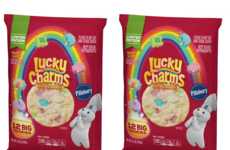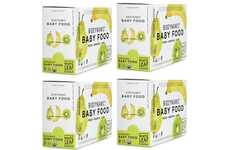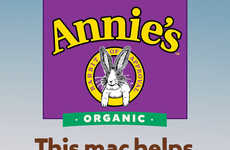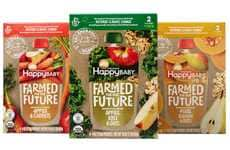


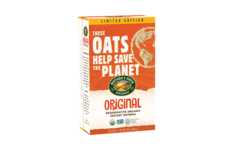
Food and beverage brands are increasingly marketing regenerative ingredients
Trend - Regenerative agriculture is an eco-conscious conservation and rehabilitation approach to food and farming systems. As the climate is a growing concern for consumers, brands are increasingly flagging regenerative ingredients when marketing their product ranges.
Insight - The contemporary consumer is increasingly conscious of production practices and their toll on communities and the environment. As a result, a growing number of individuals are emphasizing the need for more serious and sustainable practices throughout, and establish this as a driving force when making purchasing decisions. When opting-in for products that cause as little harm to the environment as possible, consumers feel confident and better about themselves.
Insight - The contemporary consumer is increasingly conscious of production practices and their toll on communities and the environment. As a result, a growing number of individuals are emphasizing the need for more serious and sustainable practices throughout, and establish this as a driving force when making purchasing decisions. When opting-in for products that cause as little harm to the environment as possible, consumers feel confident and better about themselves.
Workshop Question - How can your brand utilize/market its use of regenerative ingredients?
Trend Themes
1. Regenerative Agriculture - As the climate is a growing concern, brands are increasingly flagging regenerative ingredients when marketing their product ranges.
2. Traceable Sourcing - Brands are partnering with regional purveyors and using traceable ingredients to create eco-friendly products that also support local communities.
3. Climate-friendly Food Category - Brands are striving to create a new category of food called climate-friendly food by using regeneratively grown ingredients and emphasizing their sustainable and eco-friendly production practices.
Industry Implications
1. Food and Beverage - The food and beverage industry is increasingly focused on using sustainable and environmentally friendly production practices.
2. Climate Activism - Brands are partnering with climate activism organizations and movements to promote eco-friendly products and practices.
3. Traceability and Transparency - The use of traceable and transparent sourcing practices is becoming more important across industries as consumers seek more accountability from companies.











